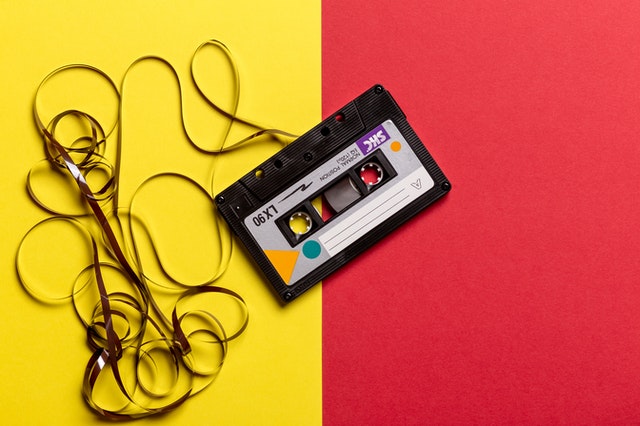I walk my dog several times a week at a park near my house. I often see some of the same people since I usually walk around the same time of the day. The other day though, I walked by someone I’ve never seen or met before.
This was a somewhat memorable experience because she was holding in her hand something I haven’t seen in years. She was listening to a cassette player. As in the old school player that plays music tapes.
I have to admit, I haven’t seen one of those things in close to 20 years. I had one myself back in junior high school. I liked it because it played music, but it was kind of a pain to use. You had to rewind and “flip” the tapes from side A to side B. Sometimes the device would even “eat” the tape, basically turning the cassette tape into a tangled up mess.
When I saw the cassette player, I kind of did a double take because I hadn’t seen one in so many years. As I continued my walk, I wondered to myself why she was still using this device when there are so many better choices out there.
After going through several reasons in my head, I came up with a theory. Some people have stopped evolving. That can mean evolving in certain areas of life like technology, or for others it can be in all areas of life. Whether it’s for better or for worse, some people stay the same and miss out on opportunities for growth.
Of course I’m not suggesting that the only way someone can grow is by replacing their cassette player with the newest smartphone or other piece of technology. The cassette player is just a highly noticeable example of staying the same for many years, and missing out on more efficient and cost effective technology.
It’s easy to let the days, weeks, months, and years go by without making changes. Day to day, you don’t really notice. It’s like the parable of the frog in boiling water. The story goes if a frog lands in a pot of boiling water, it will quickly realize the danger and jump out, saving its own life.
But if the frog lands in a pot of water that’s room temperature, it will stay in that pot even as the temperature gradually goes up. The frog doesn’t notice the small changes in temperature.
Luckily, we as humans have the capacity to change and make adjustments. We don’t have to passively let the years go by without making changes. But it does require intentionality and awareness.
So how does this all apply to personal finance? The average person’s financial picture has greatly changed over the last several years. In a ten to fifteen-year span, they’ve probably had a few jobs, increased their pay, made some investments, gone through a few cars, paid off or increased debt, and maybe even started a family.
Some people have changed their financial picture for the better, while others have gotten worse. When you’re in it, it’s not as easy to notice. But if you took a financial snapshot of where you are now versus several years ago, you’d see a huge difference.
Think of where you are now versus ten to fifteen years ago. How does your monthly take-home pay compare? What expenses did you have back then that you have since eliminated? Or conversely, what new expenses have you taken on that you didn’t have back then?
With each change, there’s opportunity to make financial adjustments. Each pay increase is a chance to increase investment contributions. Each debt paid off is the chance to pay off another debt faster, or increase investment contributions. A child transitioning from an expensive daycare to public school is a golden opportunity to invest the difference, or quickly pay down a debt.
A mortgage re-finance is an opportunity to invest the difference, or pay off your home early. Either way, it’s a positive financial gain. If you own rental properties, each rent increase is a chance to build your savings to purchase future properties.
Every year there are changes to the average person’s financial picture. Some changes are small while others are larger in scale. It’s critical for us to recognize those changes and act accordingly.
Recognition and action create opportunity, while mindlessly staying the same gets you stuck. When you’re stuck, it’s much more difficult to take advantage of life’s abundant opportunities.








